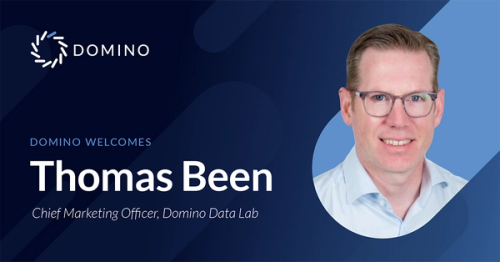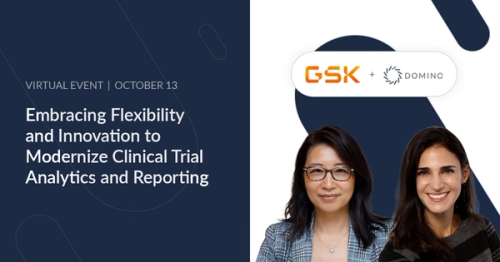Data Science at SCOR: Governing data science by example instead of edict
Antoine Ly2021-02-02 | 8 min read

Editor’s note: This is part of a series of articles sharing best practices from companies developing an enterprise data science strategy. Some articles will include information about their use of Domino.
In the past year and a half, our Data Science Center of Excellence (CoE) has significantly furthered the adoption of data science across SCOR and helped our Business Units develop models to address customer needs in a quarter of the time than they previously could.
While many factors contribute to our success, from strong executive support to top talent, one, in particular, stands out:
A philosophy and practice firmly rooted in knowledge sharing.
Why knowledge sharing?
The emphasis on knowledge sharing isn’t unique to data science here at SCOR. It’s deeply ingrained in our company culture. As the world’s fourth-largest reinsurer, we’re taking a model-driven approach to help clients control and manage risk—natural risks, climate risks, health risks, geopolitical risks, cyber risks, and many others. And we help people rebuild when adversity occurs. Our success is deeply rooted in our ability to understand an issue and collaborate with others to solve a problem.
- What are the long-term health risks for COVID-19 patients?
- How can reinsurers help foster action to increase sustainability practices and address climate change?
- How can organizations reduce their risks of falling victim to ransomware?
To this end, we’ve implemented a multi-cloud strategy along with Domino’s Enterprise MLOps platform to increase our model velocity so we can address customer needs in a quarter of the time it used to take us.
In recent years, SCOR’s Research & Development division was renamed the Knowledge team and organized with chapters dedicated to specific communities of expertise to reflect this emphasis. Our Data Science CoE is one of those communities. (Others include Agility, Biometric Risk Modeling, and Behavioral Science, for example.)
For data science, in particular, I believe this philosophy of knowledge sharing is vital. Before joining SCOR, I worked as a consultant and saw numerous instances where business leaders resisted efforts from global teams because of siloed thinking and skepticism. Taking an approach that supports people rather than imposing practices enables us to create strong partnerships with our data science and business colleagues across Europe, Asia, and the Americas and avoid the pushback that many CoEs face.
So how do we put knowledge sharing into practice?
Here are five strategies we use.
- Build a bridge between what happens locally and what happens globally. This includes embedding staff within the business to foster the exchange of ideas, practices, technologies, and documentation. For example, while we’re a global team, team members are spread across different locations and maintain a dotted-line reporting structure to both the global team and their regional market. This approach ensures our data scientists are close to the business and understand a given market’s specificities while stimulating the exchange of ideas. Thus, we can bring global practices to the different markets and elevate local practices that may benefit other markets.
- Show, don’t tell. We don’t promote a strict process for projects. Our data science experts share the best practices and templates they’ve found useful over time and recommend them as a starting point to save local teams’ time. Sometimes, this happens through documentation. For instance, suppose you have an application or API ready for deployment. In that case, we can provide documentation showing the IT requirements for moving from Proof of Concept to production to help teams move more quickly. Sometimes, it happens through the work itself, discussing as we go along what worked well in a different market and whether it might work well here. We also build with reusability in mind, but we’re always transparent about it. If you tell a business unit that we’ll need to build to a specific standard for global use, they’ll immediately think this will take more time. By making it part of our daily work, we can move quickly while still creating reusable assets (whether it’s a piece of code or an entire application). Last year, for example, we completed about 25 projects this way, which is substantial and shows the scale we can achieve.
- Get everyone involved. For example, we gathered our best technical experts from across regions to develop templates and strategies for using Python and R (two of the most commonly used tools in our data science teams). We had them look across all the different projects and develop a strong skeleton that we could reuse from one project to another and bring this kind of systematic approach when starting to create an application or API. We also look for feedback from business owners on their recommendations – what worked well in a given project and what can be improved – we’re continually learning and revisiting the way we manage a project.
- Share tools and infrastructure. To share knowledge, practices, and code, we have to share tools. To this end, we’ve implemented a multi-cloud strategy along with the Domino platform. For example, we launched a dashboarding initiative on Domino. We’re expanding on some existing dashboards to monitor the data and control some of the different models so that other markets can take advantage of them. We’ve already made one developed in Australia available to the European and US markets. We’ve also used Domino to extend the use of an API developed in Europe to make it available worldwide.
- Stay connected. Twice a month, we conduct a call with senior leaders in each market to discuss ongoing projects and new challenges. These calls ensure we can respond to changing business needs quickly and provide the necessary support. These calls helped us identify and deliver some projects quite quickly related to COVID-19, for instance. Many business leaders were impressed with what we could achieve in such a short time and started to engage in more conversations around data science. Often organizations separate business ideation from technical development. But by involving technical experts from the beginning, we can help evolve towards a more effective business solution.
Ultimately, by focusing on knowledge sharing, we’ve found that we can transform data science from a function to a mindset and propagate fresh thinking from one market to another.
About SCOR, a Global Tier 1 Reinsurer
SCOR, the world’s fourth largest reinsurer, offers its clients a diversified and innovative range of solutions and services to control and manage risk. Applying “The Art & Science of Risk”, SCOR uses its industry-recognized expertise and cutting-edge financial solutions to serve its clients and contribute to the welfare and resilience of society.
SCOR offers its clients an optimal level of security with its AA- rating or equivalent from S&P, Moody’s, Fitch and AM Best. The Group generated premiums of more than EUR 16 billion in 2020, and serves clients in more than 160 countries from its 36 offices worldwide.
For more information, visit: www.scor.com.
Antoine Ly is the Head of Data Science at Scor. Antoine puts knowledge sharing and learning at the center of the team & company development. He contributes to the company growth by acting and sharing those key values that benefit to innovation, self-development and value-added deliveries. With his mathematical background, he is sensitive to the application of research and technologies to answer business and real life issues by following software engineering best practices.
RELATED TAGS
Subscribe to the Domino Newsletter
Receive data science tips and tutorials from leading Data Science leaders, right to your inbox.
By submitting this form you agree to receive communications from Domino related to products and services in accordance with Domino's privacy policy and may opt-out at anytime.



